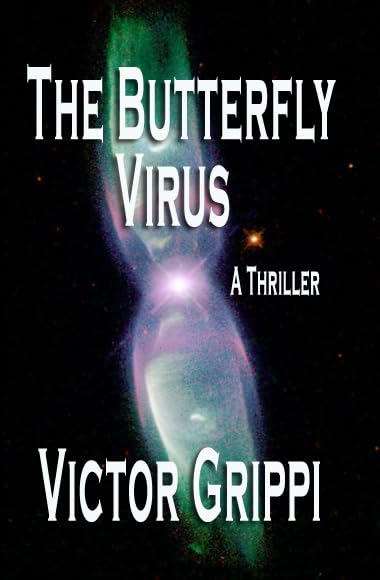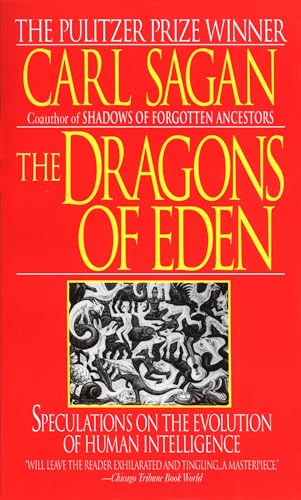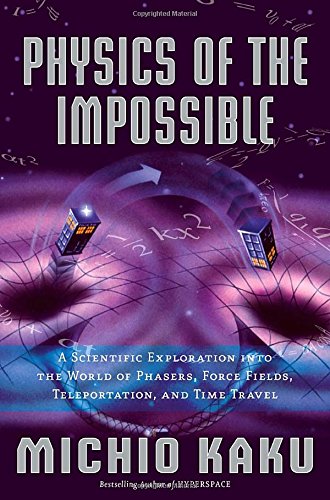Science Books to Expand Your Mind
Discover the best science books to expand your mind! Explore our curated list of must-read titles that inspire curiosity, critical thinking, and a deeper understanding of the universe.


Book
Contact
by Carl Sagan
In December, 1999, a multinational team journeys out to the stars, to the most awesome encounter in human history. Who -- or what -- is out there? In Cosmos, Carl Sagan explained the universe. In Contact, he predicts its future -- and our own.

Book
The Andromeda Strain
by Michael Crichton
For five days, American scientists struggle to identify and control a deadly new form of life.


Book
A Brief History of Time
by Stephen Hawking
#1 NEW YORK TIMES BESTSELLER A landmark volume in science writing by one of the great minds of our time, Stephen Hawking’s book explores such profound questions as: How did the universe begin—and what made its start possible? Does time always flow forward? Is the universe unending—or are there boundaries? Are there other dimensions in space? What will happen when it all ends? Told in language we all can understand, A Brief History of Time plunges into the exotic realms of black holes and quarks, of antimatter and “arrows of time,” of the big bang and a bigger God—where the possibilities are wondrous and unexpected. With exciting images and profound imagination, Stephen Hawking brings us closer to the ultimate secrets at the very heart of creation.



Book
The Da Vinci Code
by Dan Brown
Harvard symbologist Robert Langdon and French cryptologist Sophie Neveu work to solve the murder of an elderly curator of the Louvre, a case which leads to clues hidden in the works of Da Vinci and a centuries-old secret society.

Book
The Demon-Haunted World
by Carl Sagan
NEW YORK TIMES BESTSELLER • From the renowned astronomer and author of Cosmos comes a “powerful [and] stirring defense of informed rationality” (The Washington Post Book World) in a world where fake news stories and Internet conspiracy theories play to a disaffected American populace. LOS ANGELES TIMES BOOK PRIZE WINNER • “Glorious . . . A spirited defense of science . . . From the first page to the last, this book is a manifesto for clear thought.”—Los Angeles Times How can we make intelligent decisions about our increasingly technology-driven lives if we don’t understand the difference between the myths of pseudoscience, New Age thinking, and fundamentalist zealotry and the testable hypotheses of science? Casting a wide net through history and culture, Pulitzer Prize–winning author and distinguished astronomer Carl Sagan argues that scientific thinking is critical not only to the pursuit of truth but to the very well-being of our democratic institutions. He examines and authoritatively debunks such celebrated fallacies as witchcraft, faith healings, demons, and UFOs. And yet, disturbingly, in today’s so-called information age, pseudoscience is burgeoning, with stories of alien abduction, “channeling” past lives, and communal hallucinations commanding growing attention and respect. As Sagan demonstrates with lucid eloquence, the siren song of unreason is not just a cultural wrong turn but a dangerous plunge into darkness that threatens our most basic freedoms.

Book
1984
by George Orwell
1984 has come and gone, but George Orwell's prophetic, nightmare vision in 1949 of the world we were becoming is timelier than ever. 1984 is still the great modern classic negative Utopia - a startling original and haunting novel that creates an imaginary world that is completely convincing from the first sentence to the last four words. No one can deny this novel's power, its hold on the imagination of whole generations, or the power of its admonitions - a power that seems to grow, not lessen, with the passage of time.

Book
Paradise Lost
by John Milton
John Milton's celebrated epic poem exploring the cosmological, moral and spiritual origins of man's existence A Penguin Classic In Paradise Lost Milton produced poem of epic scale, conjuring up a vast, awe-inspiring cosmos and ranging across huge tracts of space and time, populated by a memorable gallery of grotesques. And yet, in putting a charismatic Satan and naked, innocent Adam and Eve at the centre of this story, he also created an intensely human tragedy on the Fall of Man. Written when Milton was in his fifties - blind, bitterly disappointed by the Restoration and in danger of execution - Paradise Lost's apparent ambivalence towards authority has led to intense debate about whether it manages to 'justify the ways of God to men', or exposes the cruelty of Christianity. For more than seventy years, Penguin has been the leading publisher of classic literature in the English-speaking world. With more than 1,700 titles, Penguin Classics represents a global bookshelf of the best works throughout history and across genres and disciplines. Readers trust the series to provide authoritative texts enhanced by introductions and notes by distinguished scholars and contemporary authors, as well as up-to-date translations by award-winning translators.